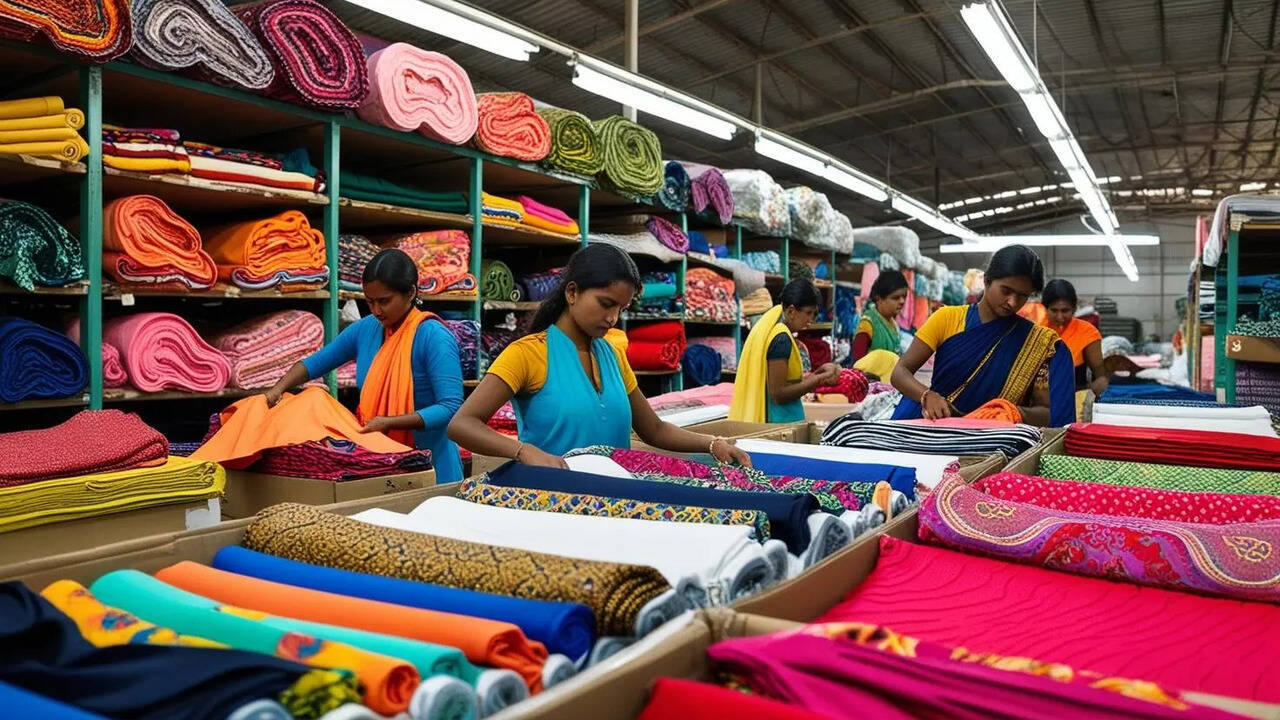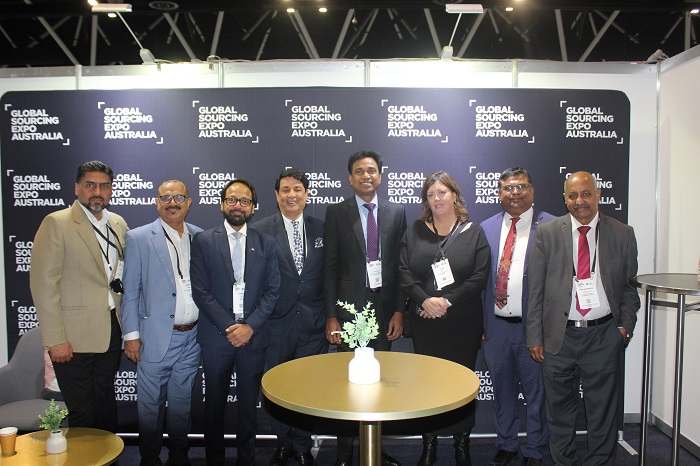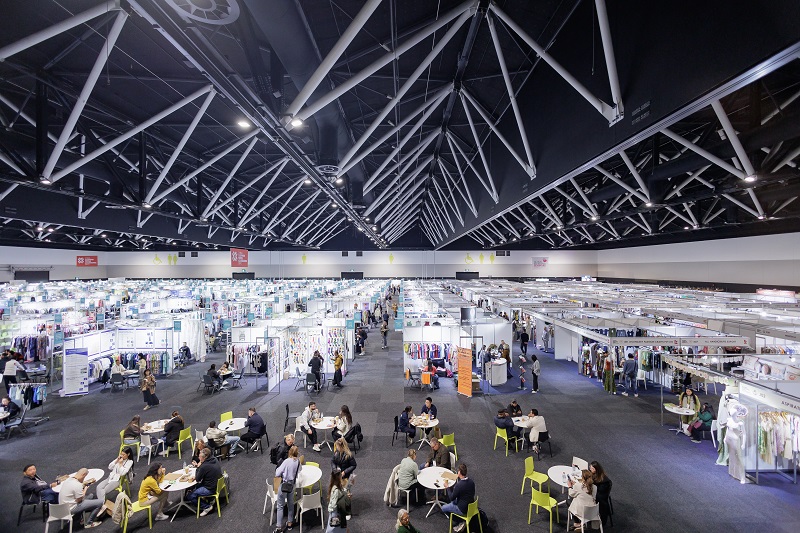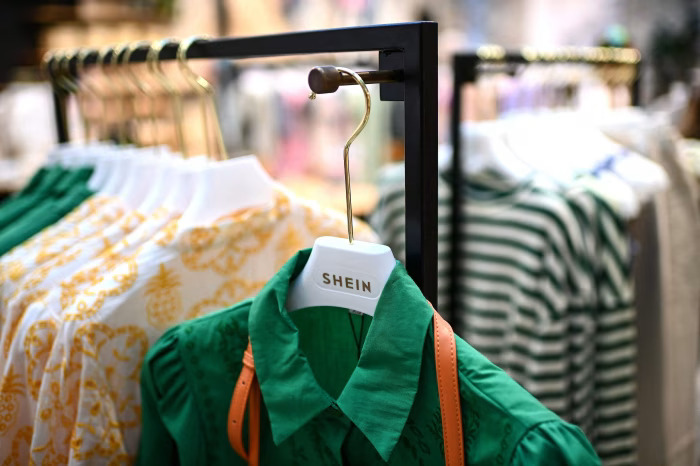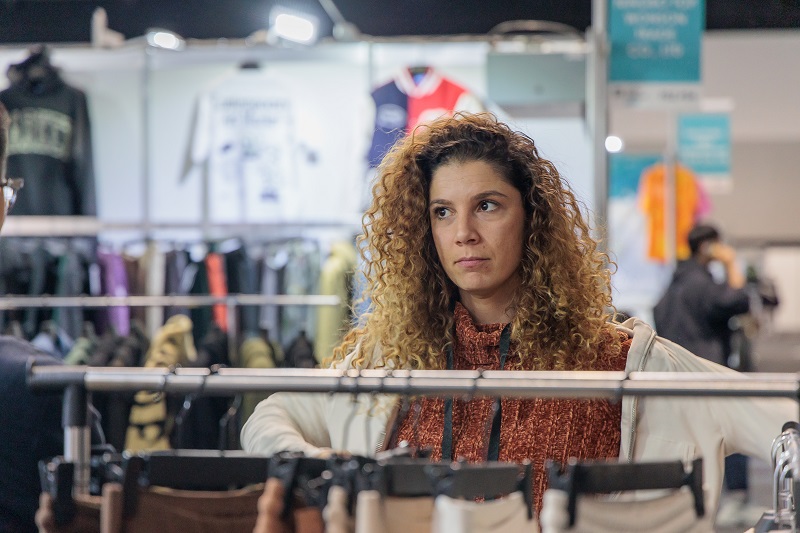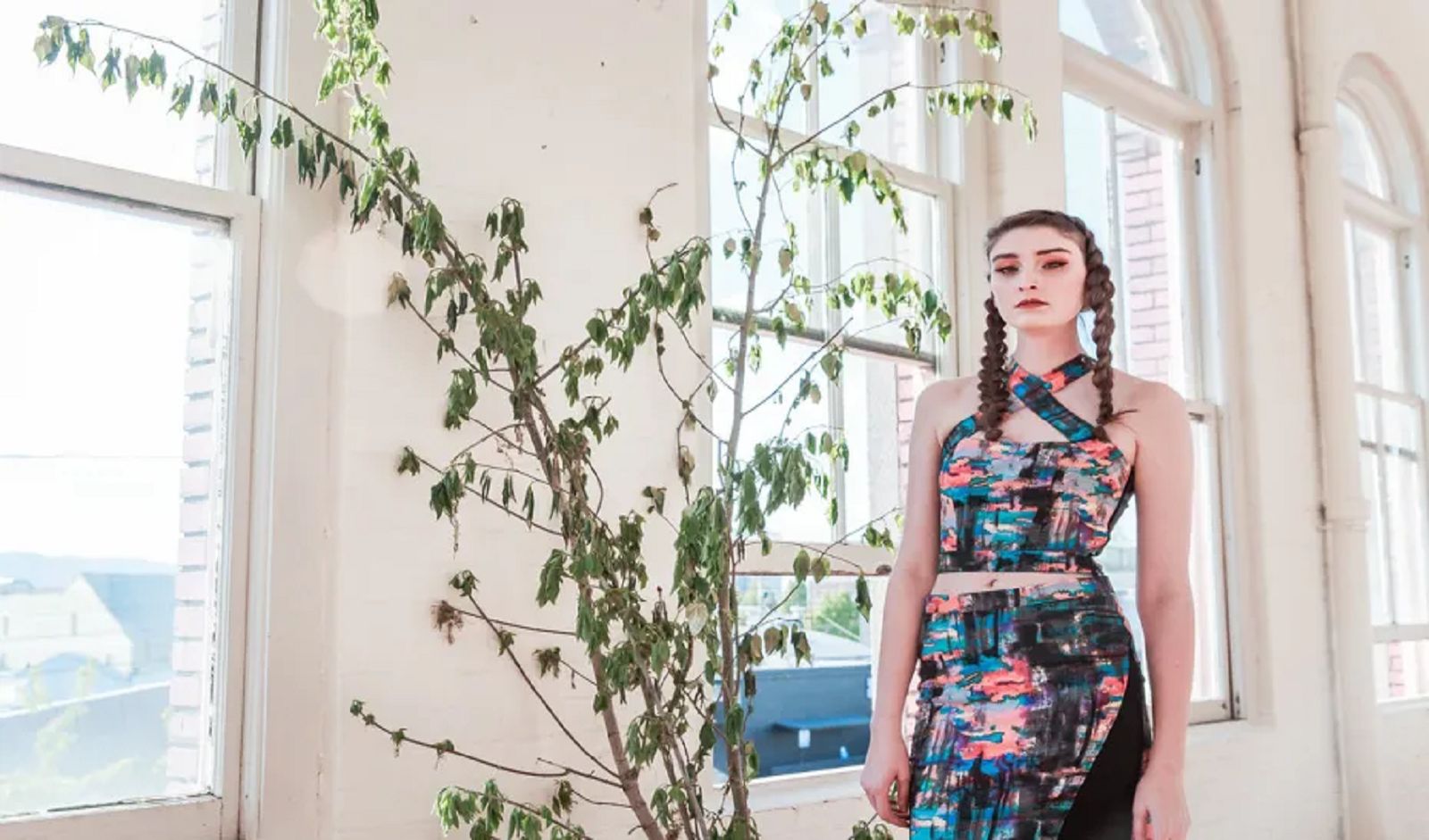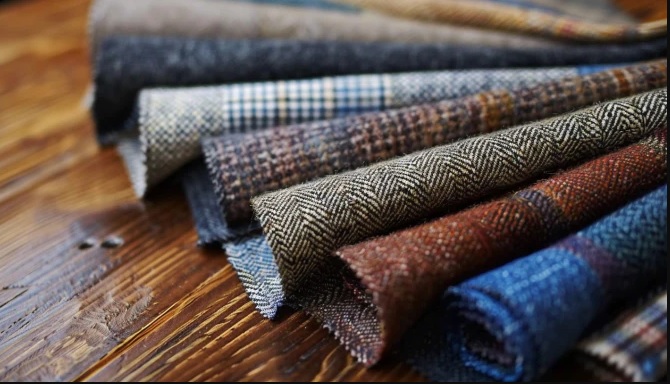FW
Global yarn production improved in Q2 of 2017. It increased in Asia, Europe and Brazil and slightly declined in the US. Global yarn stocks have also improved compared to the same quarter a year earlier.
Global fabric production improved almost nine per cent in the second quarter, with the most significant increase in Brazil, Asia and Africa (10.4 per cent, 9.8 per cent and 9.2 per cent respectively). The situation has improved compared to the second quarter of last year, with an increase in global fabric output of almost four per cent. In the second quarter, worldwide fabric stocks slightly increased, with the most significant change observed in Brazil for the second quarter in a row.
Global yarn stocks decreased one per cent in the second quarter. Asia, Europe and Brazil saw their yarn inventories increase by 0.7 per cent, 2.3 per cent and 11.5 per cent respectively, but the world average is driven down by a 12 per cent decrease in yarn stocks in Egypt. Worldwide fabric stocks rose by 3.3 per cent in the second quarter. Brazil reported a strong increase of 23 per cent. Global fabric inventories decreased by eight per cent.
The World Bank has noted Cambodia has moved up the manufacturing value chain significantly. However, the country’s political climate is in turmoil and is likely to have an adverse impact on its growing garment industry. The uncertain political climate has raised concerns over trade relations and even the currently trade benefits Cambodia enjoys. This dissonance comes just after a meeting in August where the US and Cambodia discussed enhancing their partnership under the Trade and Investment Framework Agreement (TIFA) in order to facilitate trade.
Further, the EU is considering reworking Cambodia’s trade status under its Everything But Arms (EBA) program which permits Cambodia’s garments and other exports to enter the EU duty free. GMACs Deputy Secretary-General Kaing Monika had appealed for calm, “We are just worried there might be some misunderstanding by the US or EU about the decisions of our government. What we are trying to say is to caution people not to misunderstand the situation in Cambodia.”
Cambodian workers are happy with their recent 11 per cent wage hike to $168 per month, which they will earn as of January, currently there is no labour unrest despite the current tension. GMACs Deputy Secretary-General is of the view that the EU would not roll back Cambodia’s trade privileges as part of EBA, but that it would not be entirely detrimental if it did. For the year to October, the US imported textiles and apparel valued at $2.18 billion from Cambodia, a 2.42 per cent decline when compared to the same period in 2016.
As per the World Bank’s latest economic update, Cambodia’s exports of clothing and other textile products grew in the first six months of the year, touching $3.3 billion, but that level of growth may not continue.
Walmart has joined the Cotton LEADS program that supports responsible production practices by cotton growers. Ken Lanshe, Walmart’s Vice President, General Merchandise, Technical, Quality and Sustainability says through the Cotton LEADS program, Walmart hopes to learn from and collaborate on efforts that US cotton farmers are taking to be responsible and sustainable producers.
Walmart joins over 480 companies worldwide which recognises both the environmental gains cotton growers in Australia and the United States continue to achieve and their commitment to meeting the challenge of growing sustainable cotton.
Mark Messura, Senior Vice President Global Supply Chain Marketing at Cotton Incorporated, a founding member organisation of the Cotton LEAD program explains, the program is at the forefront of the world’s efforts for sustainably-sourced cotton. Joining Walmart in the Cotton LEAD program brings the scale and commitment of an industry leader together with the leaders in cotton sustainability and responsibly-sourced cotton.
The Cotton LEADS program is a joint effort of the Australian and US cotton industries. Its founding members are Cotton Australia, the Australian Cotton Shippers Association, the Cotton Foundation, the National Cotton Council of America, Cotton Council International and Cotton Incorporated. The programme is designed to raise awareness about responsible growing practices and commitment to continuous improvement among cotton producers in the member countries, including responsible production practices, strict regulations that protect the environment and people, the ability to affect positive change nationally, nationwide cotton research and development programmes, and sustainability benchmarking.
India has not been able to take advantage of improving global environment, especially compared with its Asian peers. Though export growth has recovered relative to the past few years, at 9.4 per cent, it appears sedate compared with Vietnam’s 23.8 per cent, South Korea’s 18.4 per cent and Indonesia’s 17.8 per cent.
GST has disrupted many businesses, at least in the short run. Under GST, exporters are supposed to first pay tax on the inputs they buy from suppliers and then claim tax refunds. Delay in refunds has shrunk liquidity, especially for small and medium enterprises, which contribute almost 40 per cent to exports.
Exports of gems and jewelry declined 6.8 per cent in April-October. Exports of readymade garments, leather products and electronic goods grew 2.5 per cent, 0.6 per cent and 2.8 per cent respectively. Vietnam and Bangladesh have been able to occupy a larger share in the low-end manufacturing space being vacated by China as it moves up the sophistication ladder. For instance, Vietnam’s share in global readymade garment exports has soared from 1.7 percent to 5.3 percent in the past decade, and that of Bangladesh from 2.5 percent to 6.7 percent while India saw a mere 0.8 per cent improvement. Lower comparative advantage has been a result of infrastructure bottlenecks, rigid land and labor laws, and inferior logistics compared with these economies.
The UK has pledged £40 million to aid more than 5,00,000 people around the world who have either survived modern slavery or are at risk of becoming victims. The support will address slavery and trafficking in countries with a high prevalence of these crimes in South Asia, and others such as Nigeria.
The aid package include funds to prevent trafficking and forced labor among women migrant workers from South Asia, which has the highest prevalence of forced labor globally. This will focus on victims of forced domestic work and garment manufacturing, providing skills training to women before they move to a nearby country for work, supporting women at their destination so they can access help if they are exploited, and working with governments to improve laws and policies to protect vulnerable people from becoming victims of this crime.
In addition, funding is included for support in Nigeria focused on creating credible alternative livelihoods in hospitality, creative industries, technology and agri-entrepreneurship, so people are not forced into a life of trafficking, providing better victim support and counseling, and increasing public awareness of the risks of trafficking. About 40 million people are estimated to be modern day slaves. Hundreds of thousands of people are at risk of exploitation.
The domestic textile industry in Indonesia must diversify their products to remain competitive says the Indonesian Trade Chamber of Commerce, however, industry players are looking to the government to make the first move. Vice chairman of Indonesian Trade Chamber of Commerce Benny Soetrisno revealed the textile industry that produces clothing is already saturated. So, one has to move the production slot to another product.
Benny believes there needs to be support from raw materials products in the upstream industry. However, the upstream textile industry is high risk, high investment and low on returns. He feels the government needs to give incentives as well as ease investment so investors are attracted. At present, the industry operating in Indonesia has been integrated with classification in three areas. Firstly, the upstream sector largely produces fibre products. Secondly, the intermediate sector, company’s production processes include spinning, knitting, weaving, dyeing, printing and finishing. Thirdly, the downstream sector is garment factories and other textile products.
Ade Sudrajat, Chair, Indonesian Textile Association (API) says before diversification, internal problems of state rules, energy, human resource capability and logistics capability must be addressed. As product diversification can work alone if internal and external problems are addressed. The need of the hour is bilateral cooperation with the US and the EU to expand local textile exports enable Indonesia to be able to successfully compete with Vietnam and Bangladesh whose textile industry is growing at a rapid pace. Unhappy with exports growth Sudrajat says this year export should has seen double digit growth but with current situation it an at most grow 4 per cent.
The Ministry of Industry estimates textile industry exports will grow 11 per cent per year. For 2018, it’s pegged at $13, 5 billion and in 2017 it was $12.09 billion.
Consumers, especially the millennial, have become increasingly demanding when it comes to clothing. This has enabled brands with distinct selling points to distinguish themselves. Today, eco-conscious denim is becoming one of the more noteworthy trends in fashion.
Reformation, The Los Angeles-based brand, noted that while jeans may be one of the most popular garments in the world, denim is the worst polluting type of clothing. Besides the use of insecticides to treat cotton, which is generally indigo-dyed, such dyes frequently result in runoff that pollutes nearby bodies of water. An example, is the Pearl River in Xintang, China. The average pair of jeans requires the use of 2,000 gallons of water.
Reformation introduced a collection of “super sustainable” denim this Fall. Ref Jeans, as the collection has been branded, is made of denim that saves 1,468 gallons of water per pair on average and uses 100 per cent recycled materials. The brand discloses, they use about 50 per cent dead stock denim and 50 per cent new fabrics that are made of 60 per cent or more of Lenzing Tencel and Model. These fibres are made from sustainably harvested tree pulp that require a fraction of the water, pesticides, and resources as cotton”
Reformation’s nearly 1 million Instagram followers and the fashion press responded enthusiastically to the brand’s latest offerings. RE/DONE another success story, takes vintage Levi’s jeans and recreates new – and inherently limited amounts – of jeans, using water conserving methods and no harsh chemicals. Everlane launched its eco-friendly denim line in September retailing at $68 a pair, they are made from 2 per cent stretch Japanese denim at Saitex factory in Vietnam. The brand owner says, all of the stuff that washes out of denim, people can dump into the water supply, based on different standards within different countries….”
The government has announced Rs 8,450 crore additional incentives to enhance the country’s exports. This move is expected to mainly benefit sectors such as textile and medium and small-scale enterprises (MSMEs) as it is these two sectors that was most affected post demonetisation and GST. Commerce and Industry Minister, Suresh Prabhu recently unveiled the mid-term review of the Foreign Trade Policy (FTP) 2015-20 with a view to boosting exports. Announcing the decisions he said the Merchandise Exports from India Scheme (MEIS) incentive rate would be raised by 2 per cent across the board for labour intensive and the MSME sectors. The Federation of Indian Export Organisations (FIEO) President, Ganesh Kumar Gupta, has suggested gradual extension of MEIS to other exports segments as they also were facing various challenging export issues.
Gupta urged a one-time relaxation to meet export obligations should be provided to the industry so that they can escape the penal provisions which will be disruptive and will provide an opportunity to enhance exports as well as provide employment. The increase in annual incentive by 34 per cent to Rs 8,450 crore will benefit the leather, handicraft, carpets, sports goods, agriculture, marine, electronic components and project exports.
The focus of FTP, he says, will be on exploring new markets and products as well as increasing India’s share in traditional markets and products. The key emphasis will also be on enhancing participation of the country’s industry in global and regional value chains.
The FTP will provide additional annual incentive of Rs 749 crore for the leather sector; Rs 921 crore for hand-made carpets of silk, handloom, coir and jute products; Rs 1,354 crore for agriculture products; Rs 759 crore for marine products; Rs 369 crore for telecom and electronic components; and Rs 193 crore for medical equipment. The five-year FTP set an ambitious target of the country’s goods and services exports at $ 900 billion by 2020. Its other aim is to enhance India's share of global exports from 2 per cent to 3.5 per cent. The Government did not accept garments exporters’ demand for measures, which improved market access and cost competitiveness.
Australian company Nanollose has produced what it believes to be the world’s first plant-free viscose fiber. This gives Nanollose a significant opportunity in offering a sustainable alternative for plant-based fibers such as viscose that can have significant environmental impacts. Viscose, also referred to as rayon, is a well-established fiber made from cellulose predominantly derived from wood pulp and used to make everything from apparel to home furnishings.
However, there are significant environmental concerns surrounding production as a considerable amount of trees are cut down, chipped and then treated with hazardous chemicals followed by an energy intensive purification process to source the cellulose required for viscose production. Unlike conventional rayon, Nanollose’s sustainable plant-free viscose is derived using microbes that convert biomass waste products from the beer, wine and liquid food industries into microbial cellulose, in a process that takes less than one month and requires minimal land, water or energy. The microbial cellulose is then converted into viscose fibers using the Nanollose technology that is compatible with existing industry processing and manufacturing equipment.
Nanollose initially plans to tap into the established coconut industry to secure a supply of plant-free microbial cellulose, which will then be processed into viscose and other fibers using Nanollose technologies.
As the textile sector is India’s second largest employment provider, the government has taken several initiatives to enhance international competitiveness of the manufacturing sector. The mid-term review of the Foreign Trade Policy 2015-2020, released by the Ministry of Commerce and Industry, has largely focussed on ‘ease of doing business’, ‘ease of trading across borders’, ‘exploring new export markets’, ‘new export products’, ‘simplification of procedures and processes’ and ‘establishing national trade facilitation committee’ headed by the Cabinet Secretary, to boost exports.
P Nataraj, Chairman, The Southern India Mills’ Association (SIMA) has stated that the uniform tax rates and practices post the implementation of GST across states have led to considerable reduction in the logistics and transaction cost for exporters. He has appreciated the formation of the National Trade Facilitation Committee (NTFC) under the Cabinet Secretary to focus on transparency, technology, simplification of procedures and infrastructure augmentation, among others. 24 x 7 customs clearance extended to 19 sea ports and 17 air cargo complexes would help exporters informs Nataraj.
The government is yet to consider the long pending demand of including cotton yarn exports under MEIS and IES schemes and also to consider the fact that fabric exports under RoSL that are essential to utilise highly capital and labour intensive surplus production capacities in the spinning, weaving, knitting and processing segments, he stated. The government could have considered the industry’s demand of GST free domestic procurement against EPCG and Advance Authorisation Scheme to boost exports under the mid-term review.
He hoped the government would soon announce enhanced duty drawback rates for all textiles taking into account all embedded/blocked levies and enable the exporters to continue to have the level of export competitiveness that they had under pre-GST era.

